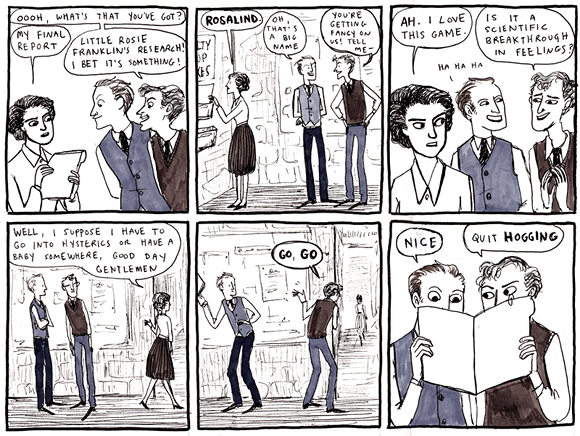Teachers might not like it, but most of us, students and non-students alike, get at least some of our information from Wikipedia. So what happens when a historical figure has a Wikipedia page with barely any information on it… or worse, no Wikipedia page at all? Can they really have been that important? Snooki’s entry is approximately 1,500 words long with 40 citations… if someone had an actual, measurable impact on, say, science and technology, shouldn’t we be able to type in their name and read more than a few sentences about it? There’s a Schrödinger’s cat joke here—I can’t quite reach it, but you know what I mean.
One of the groups often neglected in the World of Wiki are female scientists, but the Royal Society is trying to change that with a Wikipedia edit-a-thon devoted to historical female scientists and engineers. The event is affiliated with Ada Lovelace Day, named after the 19th mathematician commonly known as the “Mother of Computer Programming,” and will be followed by a panel discussion led by Uta Frith, professor of cognitive development and a fellow of the Royal Society.
On October 19th, the Royal Society will gather in London—those out of the city at the time are welcome to participate remotely—to give female scientists whose contributions to their fields have so far been neglected on Wikipedia their fair due. Among the scientists whose profiles will be seriously edit-heavy come that Friday are crystallographer Dame Kathleen Lonsdale, who discovered the chemical structure of benzene; Dr. Elsie Widdowson, who played an integral role in making vitamin supplements a standard part of World War II food rations; and paleontologist Mary Buckland, who until recently existed on Wikipedia only as part of her husband’s entry.
“The Wikipedia idea struck a real chord in me,” explains Frith,
because I read about a year ago that the typical person who writes entries for Wikipedia is a man. That really started alarm bells ringing because we don’t think about it – who is doing all this work?
Wikipedia’s gender bias is something we’ve reported on before, and it’s particularly relevant when it comes to studying history. There’s just so much of it out there (history, that is) that it can be easy for female scientists, many of whom were overshadowed by their male counterparts during their lifetimes, to be overlooked. “Can you immediately come up with a handful of names of female staff in technology?,” asks Frith. “Is that because there aren’t any or because they’re sort of invisible?…It’s a catch-22 – if you can’t find them easily in a place like Wikipedia, you won’t know anything about them. You’ll think they are not important.”
(via: BBC, illustration by Kate Beaton)








Published: Sep 24, 2012 11:45 am